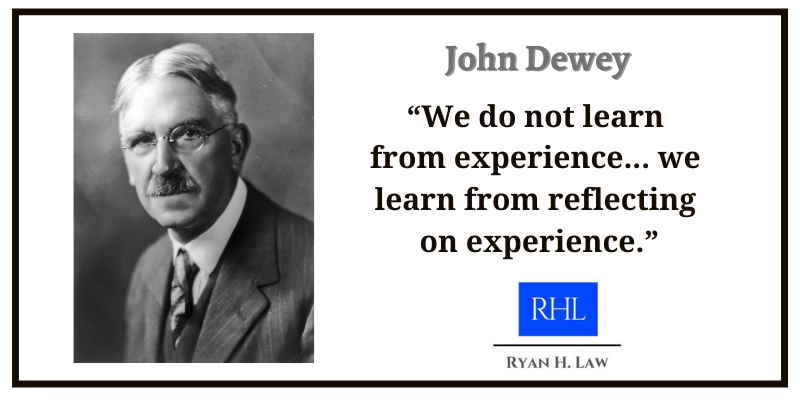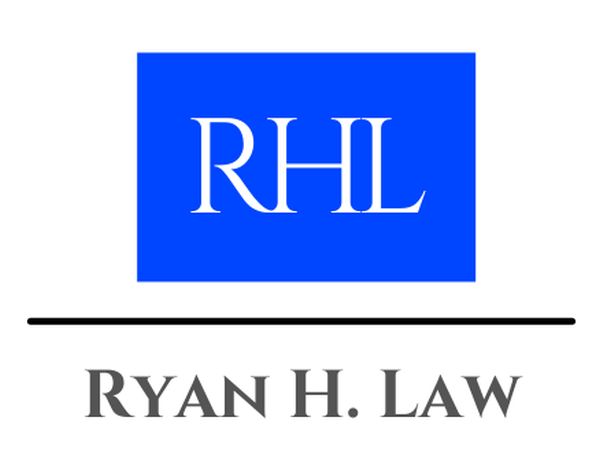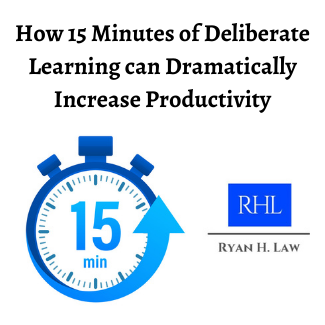by Ryan H. Law
Imagine you are a brand new financial planner. You have sat with a senior advisor as they work with clients. You have even taken the lead on a few appointments. Most people would agree that this type of on-the-job training with an experienced advisor is extremely valuable.

In fact, the CFP Board recognizes the value of that type of work. A CFP® candidate can eliminate 2,000 hours of experience if their experience is “…completed under the direct supervision of a CFP® professional1.”
If you are in that situation and you had the ability to design your next two weeks, which option would you choose?
- Be involved in 10 additional appointments with the same or another senior advisor
OR - Be involved in 2-3 appointments, with time set aside to articulate and codify (organize or arrange systematically) in writing what you learned.
If you are like most people (80% of respondents to a survey) you would choose option 1. After all, what is better than on-the-job experiential learning?
Well, it turns out that option 2 is better. A lot better.

Let’s examine each one briefly.
Option 1: Experiential Learning
No one would argue that experience is the best teacher, at least initially. In fact, option 2 only works if you have experience. The more time spent creating financial plans, especially under the watchful eye of a senior advisor, the better, right? Yes, but only up to a point.
Option 2: Deliberate Learning
In option 2 you take your experiences and spend time (about 15 minutes is recommended) reflecting on it. Part of that reflection can be done with the senior advisor:
“I noticed that you skipped over a deeper discussion of the types of life insurance with this client. Why is that?”
Some of the reflection should be done on their own:
“I noticed that the advisor skipped over a deeper discussion of the types of life insurance with this client. What are some possible reasons for that?”

Some of the reflection will be best if written. If fact, there should always be a written component.
Is this only true for new advisors?
Of course not. When was the last time you learned something new?
I read a research study about this topic2, and I am now reflecting and codifying that research by writing about it here. I understand it better because I am taking time to share it in my own words.
How much of a benefit is gained by option number 2? According to the study, as much as 23.2% over those who just focus on more experience.
We’re not taking about a small, 1-2% gain. 23.2% improvement! And the gains are long lasting – a month later the employees who reflected still had a higher level of productivity.
I recommend at the end of each work day that you shut off your computer, pull out a journal, and set aside 15 minutes and ask yourself, “What 2-3 lessons did I learn today?”
This simple habit can boost productivity long-term and be very inexpensive3. A simple notebook or journal will do the trick.
I have started doing this for myself, and I am going to have my classes do it as well.
ACTION STEPS
- Do this simple exercise. Try it for 10 days. At the end of your work day today shut off your computer, pull out a journal, and ask yourself, “What 2-3 lessons did I learn today?”

REFERENCES AND RESOURCES
- The Paths to Experience
- Making experience count: The role of reflection in individual learning
- The 15-Minute Daily Habit That Can Boost Your Team’s Productivity
Images in this post, except the image of John Dewey, are licensed by Ingram Image – Stock Photo Secrets (AFF).


Leave a Reply